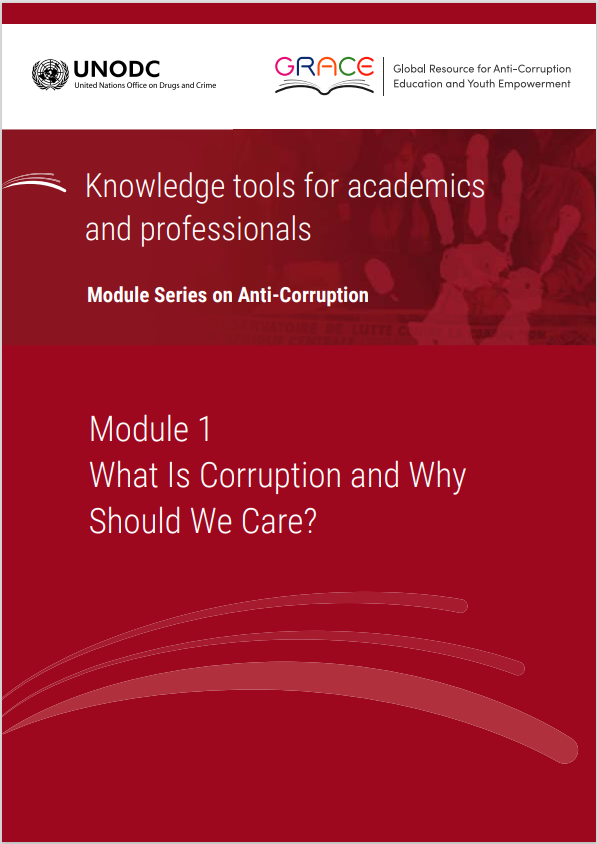This module is a resource for lecturers
Key issues
Most people are familiar with the term "corruption" and have a general idea of what it means. People often associate the term with greed, dishonesty, secrecy and crime, all of which are examples of unethical behaviour (for a related discussion on unethical behaviour see Module 6, Module 7 and Module 8 of the E4J University Module Series on Integrity and Ethics). They also rightly associate the term with concrete acts, such as bribery by businessmen and grand theft of public funds by politicians. Few people, however, advance beyond that point in their understanding of corruption. While examples of corruption from scandals and journalistic exposés are commonly referenced, a broad understanding of the term proves elusive. Experts disagree over the adequacy of the common definition, "use of public power for private gain". Something similar can be said about assessments of the cruciality of corruption. There is a strong consensus among researchers, journalists, political leaders and citizens in general that corruption is a significant problem, but the reasons people give for this proposition vary widely. As with defining corruption and explaining its significance, measuring corruption within and across nations is also fraught with difficulty. There are various available measurements of corruption resulting in a number of country ranking indices, each with their own challenges (see discussion below).
The Module provides an overview of:
- the baseline definition of corruption in plain words, law, and policy discourse;
- the effects of corruption;
- the deeper meanings of corruption; and
- different approaches to measuring corruption.
 Next:
Corruption: a baseline definition
Next:
Corruption: a baseline definition
 Back to top
Back to top
